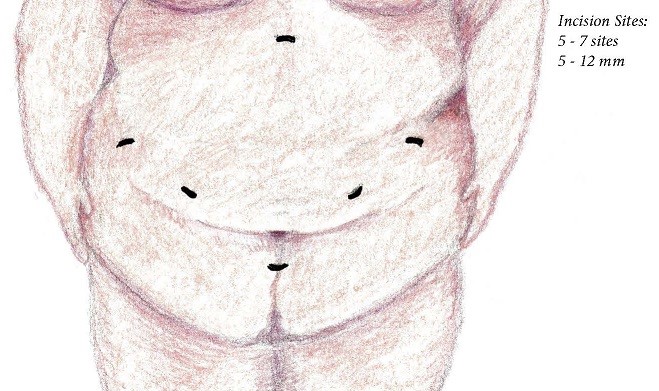Bariatric surgery is done by laparoscopic surgery. This means that the surgeon makes a few small openings (incisions) in the abdomen (belly) instead of one large opening (like what’s done during an open procedure). Having a laparoscopic surgery usually means you’ll recover more quickly and have fewer problems (complications) than with an open procedure.
During laparoscopic surgery, the surgeon uses the small openings to pass surgery tools and a camera inside your belly. The camera helps them see inside your body during the surgery.
The surgeon also puts air inside your belly so it expands (inflates). This helps them see the organs and other structures inside your belly more easily. Most of this air is removed at the end of the surgery.

Bariatric surgery incision sites
Image credit: J. Williamson
In Alberta, the 2 most common types of bariatric surgery are:
- gastric bypass
- sleeve gastrectomy
Both of these surgeries can help treat obesity by making your stomach smaller. This means you’ll only be able to eat a very small amount of food at a time. Surgery also causes other changes to your digestive tract. This can make it harder for your body to absorb some nutrients.
Each surgery has risks and benefits. It’s important to talk to your surgeon about what type of surgery may be best for you.
